Teens Screens, Procrastination & Sleep

Excessive use of screens is linked with increases in melatonin, anxiety, depression & many concerns associated with lack of sleep.
Research suggests 8-10 hours per night is required to maintain mood, cognitive function, and overall well-being.
Encouraging healthy screen habits and time management skills helps to maintain a balanced lifestyle.
Create and model an environment where open sharing and clear boundaries set limits or rules around technology as these help to minimise conflict and promote a cohesive family environment.
Power of Connection: Building Support Networks for Teens

Strong relationships with family and friends play a crucial role in this process.
These bonds not only bolster self-esteem but also enhance empathy and promote cooperative behaviors, contributing to overall mental well-being.
Parents can nurture these connections by engaging in open, empathetic conversations, actively listening to their teens, and creating safe, non-judgmental spaces for expression.
Encouraging participation in community activities or peer groups further strengthens social networks, providing teens with a sense of belonging and additional support.
How to Talk to Your Teen About Sexting Nudes & the Law

Engaging in open and informed discussions with your teenager about sexting is essential to their safety and legal well-being.
Begin by clearly explaining the legal implications: in Australia, creating, possessing, or sharing explicit images of individuals under 18 is illegal, regardless of consent, can result in severe penalties.
Encourage your teen to consider the potential consequences of sexting, such as loss of privacy, cyberbullying, and emotional distress.
Foster an environment where they feel comfortable discussing peer pressure and online interactions, reinforcing the importance of critical thinking and personal boundaries.
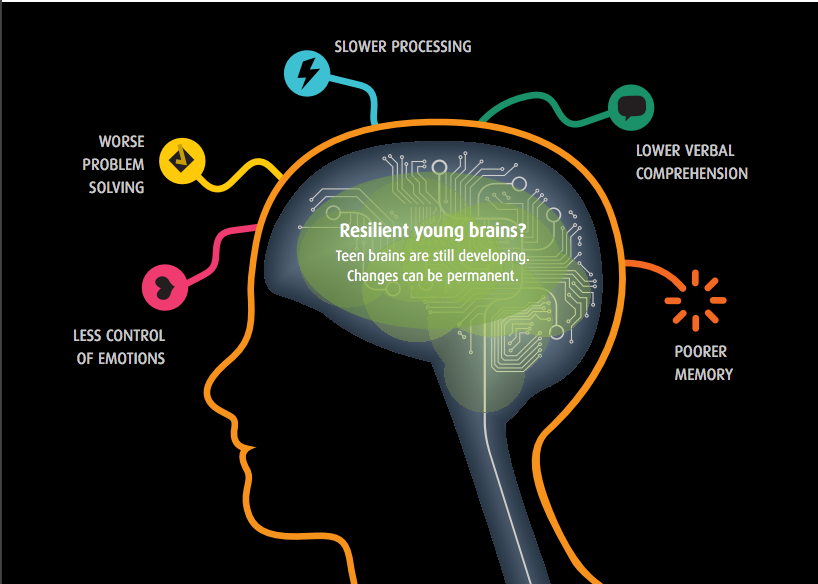
Impact of Drug and Alcohol Use on Teen Mental Health
Adolescence is a critical period of brain development, making teens particularly vulnerable to the adverse effects of drug and alcohol use on mental health.
Substance use during this formative stage can disrupt normal brain maturation, leading to long-term cognitive impairments and increased susceptibility to mental health disorders.
Research indicates that heavy alcohol consumption among adolescents is associated with heightened psychological distress, anxiety, and depression.

The Psychological Impact of Stealing on Teens and Their Families
The psychological impact of stealing on teens and their families can be profound and multifaceted.
By understanding the underlying causes and addressing the behavior with empathy, open communication, and professional support, families can work together to overcome the challenges and promote positive change.
With the right approach, teens can learn to manage their impulses, build trust, and develop healthier coping mechanisms, leading to improved mental health and stronger family relationships.

Building Healthy Relationships: A Guide for Teens
Building healthy relationships is essential for teens as they navigate social dynamics and personal development.
Key components of such relationships include respect, trust, honesty, and effective communication.
Respect involves valuing each other's ideas and boundaries, ensuring both partners feel valued and heard. Trust and honesty foster a safe environment where individuals can be their authentic selves without fear of judgment.
Open communication allows for the expression of thoughts and feelings.

Healing from Trauma: Effective Therapies for PTSD
Emotion-Focused Therapy (EFT) emphasizes the pivotal role of emotions in personal transformation.
By helping clients access and process deep-seated feelings, EFT facilitates the modification of maladaptive emotional responses, fostering meaningful psychological change.
Research indicates that EFT is effective in treating emotional trauma, with studies demonstrating its efficacy in addressing issues stemming from childhood abuse and complex relational trauma such as PTSD.
Learn to build skills for healthy responses to difficult emotions and ways to more effectively regulate your negative emotions, thereby promoting recovery and enhancing emotional well-being.

Finding Light in the Darkness: Coping with Depression using EFT
Emotion-Focused Therapy (EFT) offers a path to healing for individuals grappling with depression by emphasizing the exploration and transformation of deep-seated emotions.
Through EFT, clients are guided to become more aware of their emotional experiences, allowing them to process and reframe maladaptive feelings that contribute to depressive symptoms.
This therapeutic approach facilitates the development of healthier emotional responses, empowering individuals to navigate their inner landscapes with greater resilience and self-compassion.
By engaging in EFT, those facing depression can uncover personal strengths and foster a renewed sense of hope, illuminating a path toward recovery.

Mindfulness and Meditation: Tools for Managing Anxiety & Depression
Mindfulness enhances emotional awareness by encouraging individuals to observe their thoughts and feelings non-judgmentally, fostering a deeper understanding of their emotional states.
This heightened self-awareness allows for the processing and reframing of maladaptive emotions contributing to anxiety and depression.
Research indicates that mindfulness-based interventions can lead to significant reductions in anxiety and mood symptoms.
By incorporating mindfulness and meditation into EFT, individuals can develop healthier emotional responses, improve emotion regulation, and cultivate a renewed sense of well-being.
Art Therapy, Sandplay Therapy & Play therapy

Art, Sandplay, and Play Therapies are expressive therapeutic approaches that utilise creative activities to address psychological challenges and promote emotional well-being.
Art Therapy involves creating visual art to explore and express emotions. Sandplay Therapy uses miniature figures and a sandbox to build scenes, reflecting a person's inner thoughts and struggles.
Play Therapy employs play to communicate with clients, especially helpful for those who find it difficult to express themselves verbally.
These therapies facilitate self-expression, enhance coping mechanisms, and support psychological healing across diverse age groups. These are powerful modalities that often take people by surprise.
Autism and the different presentations

Autism Spectrum Disorder (ASD) manifests differently in women compared to men, leading to significant implications for diagnosis and support.
While ASD is more commonly diagnosed in males, recent research indicates that females may exhibit subtler symptoms and engage in masking behaviors, actively concealing difficulties to conform to societal expectations.
This masking can contribute to underdiagnosis or misdiagnosis in women, as their challenges might not align with traditional diagnostic criteria predominantly based on male presentations.
Understanding these gender differences is crucial for developing accurate diagnostic tools and providing appropriate support for women and men on the autism spectrum.
Self-Care for Mental Health: Essential Practices

Prioritizing self-care is essential for maintaining mental health for those who balance multiple roles and responsibilities.
Engaging in regular self-care practices, such as maintaining a healthy diet, exercising, ensuring adequate sleep, and managing stress can significantly enhance emotional and psychological well-being.
Incorporating activities like mindfulness, setting boundaries, and seeking social support also play vital roles in fostering resilience against life's challenges.
By dedicating time to these practices, we can improve our quality of life, boost self-confidence, and cultivate a more balanced and fulfilling lifestyle.
What can you do to improve the way you are looking after yourself currently?

Promoting Positive Body Image in Teens
Creating more body satisfaction, acceptance, self-confidence, self-love, or even body neutrality will look and feel different for everyone.
The journey is very personal to get to a place where you can appreciate your body. There are a range of supports available.
What works for one person, may not work as well for someone else.
Keeping an open mind, experimenting, and finding what works for you will help you improve your relationship with your body and appearance.
Negative perceptions can lead to mental health issues and risky behaviors.
If you notice your teen obsessing over body image or weight, it's important to seek professional help, as such preoccupations can lead to serious mental health issues, including eating disorders.

EFT: a pathway to healing Depression
Emotion-Focused Therapy (EFT) offers a path to healing for individuals grappling with depression by emphasizing the exploration and transformation of deep-seated emotions.
Through EFT, clients are guided to become more aware of their emotional experiences, allowing them to process and reframe maladaptive feelings that contribute to depressive symptoms.
This therapeutic approach facilitates the development of healthier emotional responses, empowering individuals to navigate their inner landscapes with greater resilience and self-compassion.
By engaging in EFT, those facing depression can uncover personal strengths and foster a renewed sense of hope, illuminating a path toward recovery.

Understanding the impact of Childhood Trauma
Childhood trauma can have profound and lasting effects on an individual's emotional and psychological well-being.
It often stems from experiences of neglect, abuse, or significant loss during formative years.
These early adverse experiences can shape a person's perception of the world, relationships, and self-worth.
Trauma may manifest in various ways, including anxiety, depression, difficulty in forming secure attachments, and challenges in emotional regulation.
The impact of childhood trauma can persist into adulthood, influencing behaviour patterns and coping mechanisms.
Seeking professional help allows space to process experiences, develop coping strategies, and reduce symptoms in a safe and supportive environment.

Learning to follow your 'gut' intuition & trust yourself
Trusting intuition and body wisdom is a powerful approach to understanding and managing our psychological well-being.
Intuition, often described as a "gut feeling," provides insights that our conscious mind may overlook.
Our body has inate wisdom such as the signals our body sends us, such as tension, relaxation, or gut sensations, which link to our emotional and psychological state.
When we learn to trust these internal cues, we can make more informed decisions, enhance self-awareness, and improve our mental health.

How to make sense of Eating Disorders
Body image disparagement, or the self-loathing directed toward the body, physical appearance, and weight and shape, is understood as the displacement of negative affect onto the body.
Attempting to control and change the body can then be understood as an attempt to render feelings amenable to control and change.
Feelings are intolerable, dangerous, and to be feared, and must be “gotten rid of” or avoided altogether.
The eating disorder is a highly effective means of accomplishing this. Starving numbs, bingeing soothes, & vomiting provides relief.

Postpartum breastfeeding difficulties depression risks
It's important to note that the relationship between breastfeeding and PPD is complex and bidirectional.
Breastfeeding challenges, such as latching difficulties, low milk supply, or pain during nursing, can significantly impact a mother's mental health, potentially increasing the risk of postpartum depression (PPD).
Mothers who experience these issues may feel frustration, inadequacy, or guilt, which can contribute to depressive symptoms.
Research indicates that women who encounter breastfeeding difficulties are more likely to develop PPD compared to those who breastfeed without complications.

Managing the challenges of Menopause and Brainfog
You may feel that you are ‘losing your marbles’ or fear that you have early onset dementia, but most symptoms of menopausal transition start with changes in your brain chemistry, so it isn’t your fault.
You are also not alone, about half the women in menopausal transition will experience changes in their cognition, or the way they think.
Thankfully, these changes are usually temporary in nature and will settle down once you are past your early postmenopausal years.

The impact of the hidden, ongoing Mental Load
When one person carries the mental load, it can lead to burnout, stress, and resentment, especially if the other partner doesn't recognize or acknowledge the imbalance in responsibilities.
Mental load encompasses the invisible, non-tangible tasks involved in running a household or workplace, such as meal planning, scheduling, managing finances, remembering birthdays, organizing events, and coordinating childcare or errands.
The constant need to anticipate and remember various tasks can be mentally exhausting, impacting overall well-being.

Maternal and Paternal Postpartum depression
New fathers can experience postpartum depression, often called paternal postpartum depression, with symptoms similar to those seen in mothers, including sadness, anxiety, and changes in sleep and appetite.
The occurrence of paternal PPD is often linked to maternal depression, suggesting that both parents' mental health are interconnected.
Recognizing and addressing PPD in both mothers and fathers is crucial, as untreated depression can negatively impact family dynamics and child development.

Kids, ADHD and behavioural concerns
Children with Attention-Deficit/Hyperactivity Disorder (ADHD) often face behavioral challenges that can impact their daily lives.
Common symptoms include inattention, hyperactivity, and impulsivity, which may lead to difficulties in academic settings, social interactions, and family dynamics.
These behaviors can sometimes be misinterpreted as intentional misconduct, resulting in misunderstandings and strained relationships.
It's crucial to recognize that these actions are manifestations of the disorder, not deliberate defiance.
Psychologists play a crucial role in managing ADHD by providing tailored interventions that enhance executive functions, such as planning, organizing, and emotion regulation.

Fidget toys for all ages & how they help
ADHD is a neurodevelopmental disorder characterised by symptoms related to hyperactivity, impulsivity, and inattention.
The condition is typically treated with medication and therapy, but other techniques and tools are often used to help people manage their symptoms.
Fidget toys for ADHD are one tool that are often marketed as a way of improving attention.
Fidget toys are small, handheld objects that can be manipulated with the hands. These devices are intended to aid in self regulation and help people with ADHD improve their ability to focus and better tolerate feelings of boredom, anxiety, and excitement.
Individuals with autism also utilize fidget toys as a self-regulation mechanism, helping to manage stress, maintain focus, and modulate sensory input, thereby promoting emotional well-being.

ADHD and Neurofeedback brain training
Neurofeedback, also known as EEG biofeedback, is a non-invasive therapeutic approach that aims to help children with Attention-Deficit/Hyperactivity Disorder (ADHD) regulate their brain activity.
During sessions, electrodes are placed on the child's scalp to monitor brainwave patterns, providing real-time feedback through visual or auditory cues.
This process encourages the development of healthier brain function, potentially leading to improvements in attention, impulse control, and hyperactivity.
Some studies suggest that neurofeedback can significantly reduce ADHD symptoms, enhancing behavior and cognitive performance.

When do I need to get help for my child's anger?
Recognizing when to seek professional help for your child's anger is crucial for their emotional and social development. While occasional outbursts are a normal part of growing up, certain behaviors may indicate the need for intervention:
Impact on Self-Esteem: If your child expresses feelings of guilt or worthlessness following outbursts, it suggests a need for support.
Persistent Tantrums Beyond Expected Age: If your child continues to have frequent tantrums beyond the typical age, it may signal underlying issues.
Aggressive Behavior: Actions that pose a threat to themselves or others, such as hitting or biting, require immediate attention.
Disruption in Various Settings: Consistent anger episodes at school, home, or social environments that lead to disciplinary actions or social isolation are concerning. MHS
Interference with Daily Life: When anger disrupts family routines, academic performance, or peer relationships, it may indicate deeper emotional struggles.

What can cause tantrums and meltdowns?
Children's meltdowns and tantrums are often responses to unmet needs or overwhelming emotions.
Common triggers include physical discomforts such as hunger, tiredness, or illness, which can lower a child's tolerance for frustration.
Emotional factors like frustration from unachieved goals or inability to express desires due to limited language skills also contribute to outbursts. Environmental changes, such as alterations in routine or overstimulating settings, can further provoke tantrums.
Additionally, underlying conditions like anxiety, attention-deficit/hyperactivity disorder (ADHD), or sensory processing issues may predispose children to more frequent or intense meltdowns.
Recognizing these triggers is essential for parents and caregivers to effectively address and mitigate challenging behaviors in children.
If you are struggling with constant meltdowns in you or your family, please get in touch for support.

Modeling is the key to calming the family unit
Managing a child's emotions can be challenging for parents and caregivers; however, it is a natural aspect of emotional development.
Creating a safe and supportive environment allows children to express their anger constructively.
Teaching them effective emotion regulation strategies can be accomplished through open communication, problem-solving skill development, and introducing healthy coping mechanisms.
Some suggestions are deep breathing, calming techniques, empathy towards others' feelings, or expressing emotions through art and writing.
Together with the help of a Psychologist, we can work towards calming your family down to be less reactive and more harmonious.
As parents, you don’t have control over your children; you can only control yourself!
If your child constantly screams, throws tantrums, misbehaves, and engages in power struggles with you, you’re in the right spot. Reach out to get support.

Exploring Neurodivergence & Autoimmune Disorders
Emerging research suggests a notable correlation between neurodivergent conditions such as autism spectrum disorder (ASD) and attention-deficit/hyperactivity disorder (ADHD) and autoimmune disorders.
Individuals with neurodivergent traits may exhibit a higher prevalence of autoimmune diseases, indicating a potential interplay between neurological development and immune system function.
For instance, studies have found significant associations between familial autoimmune diseases and the development of ASD or ADHD in children.
Additionally, research indicates that individuals with ASD may experience immune system dysfunction, including reduced immune regulation and altered gut microbiota.

Chronic fatigue and co-occuring conditions
Chronic Fatigue Syndrome (CFS), also known as Myalgic Encephalomyelitis (ME), is a complex disorder characterized by profound fatigue that doesn't improve with rest and may worsen with physical or mental activity.
Individuals with CFS often experience a range of co-occurring conditions, complicating diagnosis and management.
Common comorbidities include fibromyalgia, irritable bowel syndrome (IBS), temporomandibular joint syndrome (TMJ), and migraines.
These overlapping conditions share symptoms such as pain, cognitive disturbances, and sleep disruptions, which can exacerbate the challenges faced by those with CFS.
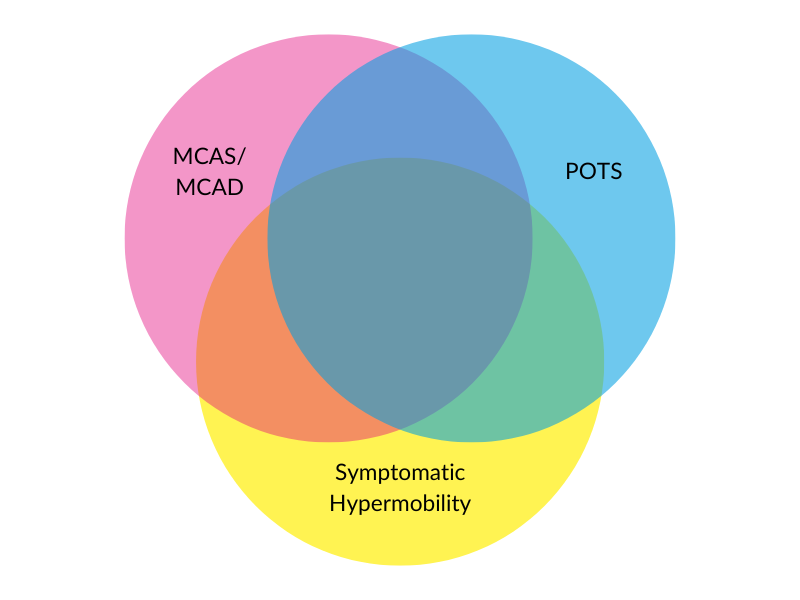
Syndromes Affecting Connective Tissue, Circulatory System, & Immune Response
The EDS-POTS-MCAS triad refers to the co-occurrence of three distinct yet interconnected conditions: Ehlers-Danlos Syndrome (EDS), Postural Orthostatic Tachycardia Syndrome (POTS), and Mast Cell Activation Syndrome (MCAS).
EDS is a group of connective tissue disorders characterized by hypermobility, skin that is hyper-elastic, and tissue fragility. POTS is a condition that affects blood flow and how blood returns to the heart, leading to symptoms like lightheadedness, fainting, and rapid heartbeat, especially when transitioning to an upright position.
MCAS involves the inappropriate activation of mast cells, leading to symptoms such as allergic reactions, including hives, swelling, and anaphylaxis.

Understanding Panic Attacks: Symptoms and Treatment
Panic attacks are sudden episodes of intense fear or discomfort that trigger severe physical reactions, even when there is no real danger or apparent cause.
Common symptoms include a racing heart, shortness of breath, chest pain, dizziness, and excessive sweating.
These attacks can be frightening, often leading individuals to believe they are experiencing a heart attack or losing control. Effective treatments encompass psychotherapy, and medications can reduce the severity and frequency of episodes. Implementing relaxation techniques, such as deep breathing and mindfulness exercises.
Seeking professional help is crucial for those experiencing recurrent panic attacks to improve their quality of life.

The Impact of Anger on Heart Health
Chronic anger and hostility have been linked to an increased risk of cardiovascular diseases, including heart attacks and strokes.
When a person experiences anger, the body's "fight-or-flight" response is activated, leading to physiological changes such as increased heart rate, elevated blood pressure, and the release of stress hormones.
Over time, these responses can impair blood vessel function and promote the buildup of arterial plaque, contributing to the development of heart disease.
Managing anger through techniques like mindfulness, cognitive restructuring, and relaxation exercises can be beneficial in reducing these health risks.
Understanding and addressing the connection between emotional well-being and heart health is crucial for overall cardiovascular wellness

Getting Help for your Obsessions and Compulsions
Obsessive-Compulsive Disorder (OCD) is a mental health condition characterized by persistent, intrusive thoughts (obsessions) and repetitive behaviors or mental acts (compulsions) performed to alleviate the distress caused by these thoughts.
Common obsessions include fears of contamination, harm, or symmetry, while compulsions often involve excessive cleaning, checking, or counting rituals. These behaviors can significantly interfere with daily functioning and quality of life.
Effective treatment options encompass cognitive-behavioral therapy (CBT), Emotion Focussed Therapy (EFT) to unpack the underlying emotion schemes which need restructuring to alleviate the need for these thoughts and actions in the first place.

Understanding the Gut - Brain Axis
The gut-brain axis refers to the bidirectional communication network linking the gastrointestinal tract and the brain, allowing emotional and cognitive centers to interact with peripheral intestinal functions.
This complex interplay means that psychological stress and anxiety can influence gut health, while gastrointestinal issues can impact mental well-being.
Research indicates that an imbalance in gut microbiota, known as dysbiosis, may contribute to mental health disorders such as anxiety and depression.
Furthermore, irritation in the gastrointestinal system can send signals to the central nervous system, potentially triggering mood changes.
Understanding this connection underscores the importance of a holistic approach to mental health, considering both psychological and digestive health factors.

Understanding Avoidant/Restrictive Food Intake Disorder (ARFID)
Avoidant/Restrictive Food Intake Disorder (ARFID) is an eating disorder characterized by restrictive eating habits not driven by concerns about body weight or shape. Individuals with ARFID may avoid certain foods due to sensory sensitivities, fear of choking or vomiting, or a general lack of interest in eating.
This avoidance can lead to significant nutritional deficiencies, weight loss, and interference with daily functioning.
Unlike other eating disorders, ARFID does not involve distress about body image but still requires professional intervention.
Treatment often includes cognitive-behavioral therapy (CBT) to address and modify maladaptive eating behaviors and emotion focussed therapy (EFT) to help process feelings around one's experience.

The Psychological Dimensions of IBS, Crohnes & Ulcerative Colitis
Irritable Bowel Syndrome (IBS), Crohns and Ulcerative Colitis (UC) are gastrointestinal disorders that not only affect physical health but also have significant psychological implications. Individuals with IBS often experience heightened levels of anxiety and depression, with studies indicating a threefold increase in these conditions compared to healthy individuals.
Similarly, those with UC are at an elevated risk for mental health challenges, especially during active disease phases.
The gut-brain axis plays a crucial role in this interplay, as stress and emotional distress can exacerbate gastrointestinal symptoms, creating a cyclical pattern of discomfort and psychological strain.
Addressing these conditions holistically through psychological interventions can alleviate symptoms and improve overall well-being.
Understanding Narcissism: Traits and Implications

N
Narcissism refers to an inflated sense of self-importance, a deep need for admiration, and a lack of empathy for others. Individuals exhibiting narcissistic traits often believe they are superior to others and may exploit relationships to achieve their own goals.
While a certain degree of self-confidence is healthy, excessive narcissism can lead to interpersonal difficulties and emotional distress.
Recognizing these traits is crucial for fostering healthier relationships and promoting emotional well-being.
Getting the proper support is crucial to help you navigate these master manipulators who gaslight and make you constantly doubt yourself.
Bipolar Disorder: Symptoms and Treatment
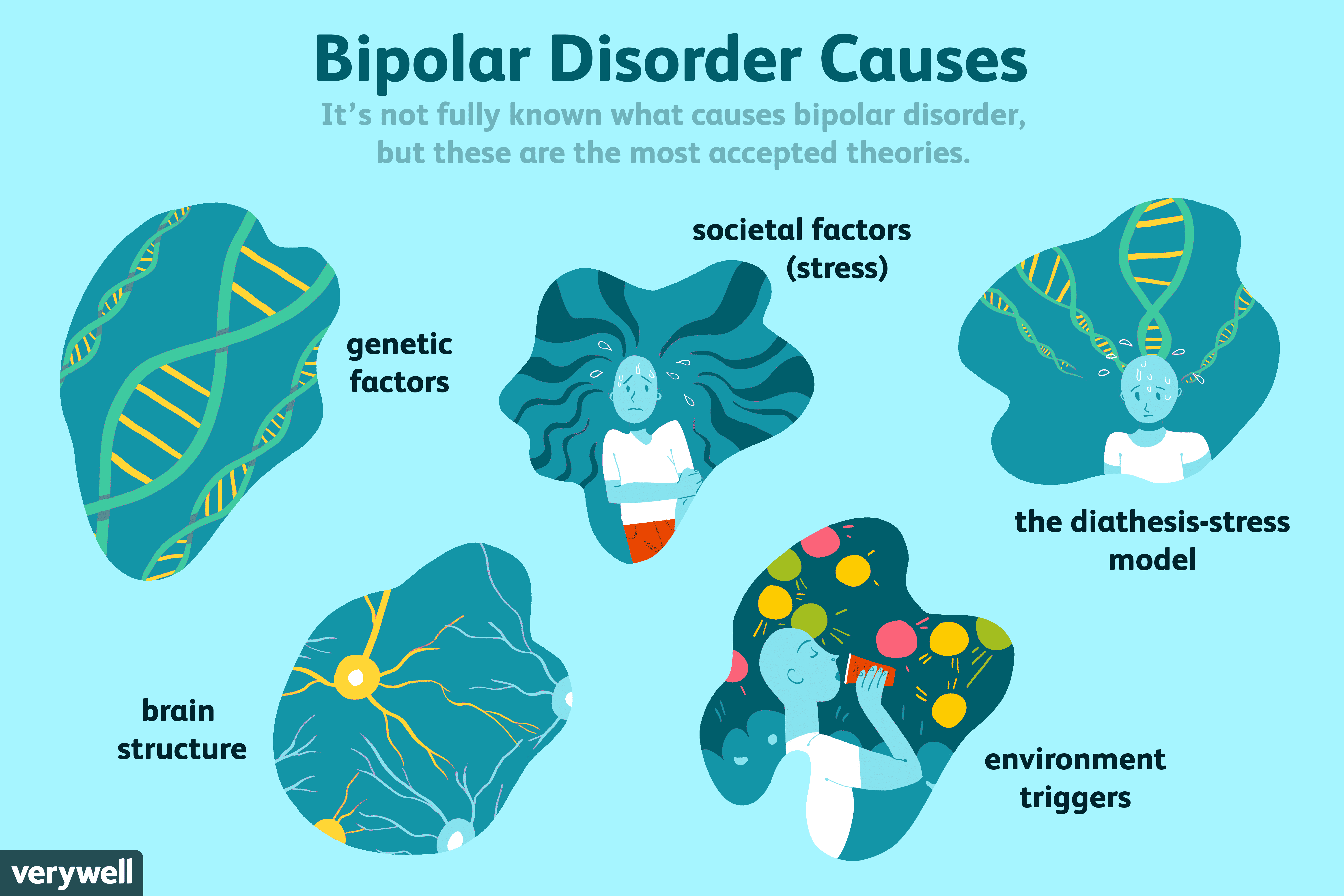
Bipolar disorder is a mental health condition characterized by significant mood swings that include emotional highs (mania or hypomania) and lows (depression).
During manic phases, individuals may experience elevated energy levels, reduced need for sleep, and impulsive behavior. Conversely, depressive episodes can lead to feelings of sadness, hopelessness, and a loss of interest in daily activities.
The exact cause of bipolar disorder remains unclear, but factors such as genetics, environment, and altered brain structure may contribute to its development.
Effective management typically involves a combination of medications and psychotherapy to stabilize mood and improve quality of life.
The Nervous System's Role in Sensory & Motor Sensitivity
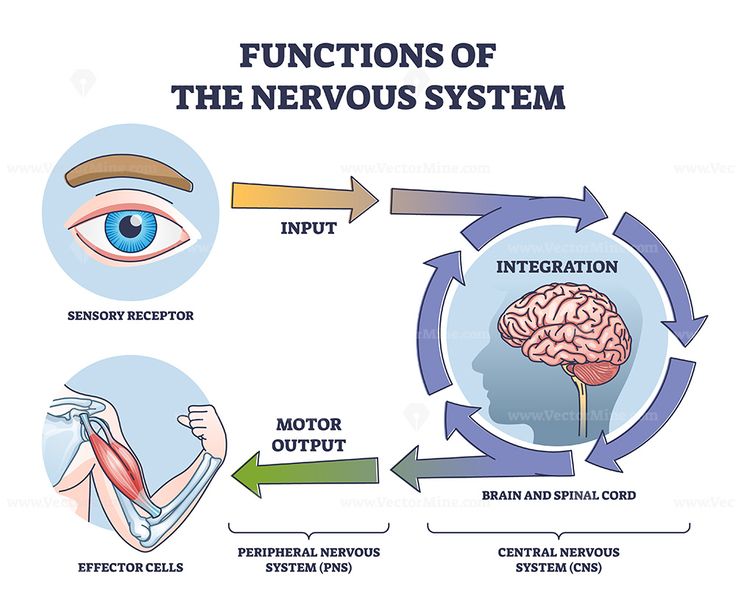
The nervous system is integral to processing sensory inputs and coordinating motor outputs, directly influencing an individual's sensitivity to various stimuli.
Sensory nerves transmit information from the environment to the brain, enabling the perception of touch, temperature, pain, and other sensations. Motor nerves convey signals from the brain to muscles, facilitating movement and responses.
Disruptions or heightened sensitivities in these pathways can lead to conditions where individuals experience amplified responses to sensory stimuli, such as light, sound, or touch.
This heightened sensitivity is often observed in neurodivergent individuals, including those with autism and ADHD, affecting their interaction with and perception of the surrounding world.
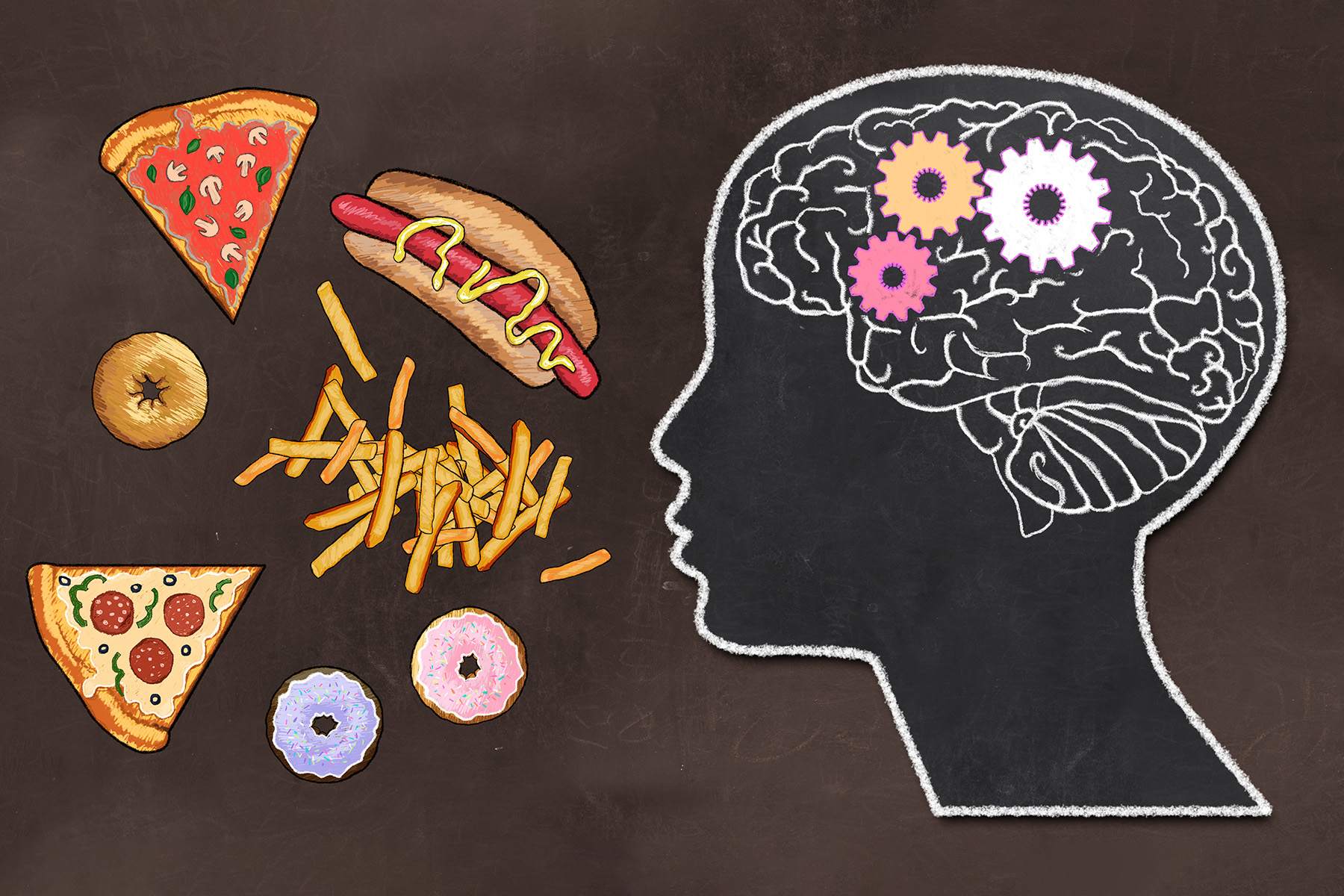
Impact of Binge Eating disorder on Mental Health
Binge Eating Disorder (BED) is a prevalent eating disorder characterized by recurrent episodes of consuming large quantities of food within a short time frame, accompanied by feelings of loss of control and significant distress.
Unlike other eating disorders, individuals with BED do not regularly engage in compensatory behaviors, such as purging or excessive exercise.
Common symptoms include eating rapidly, consuming food until uncomfortably full, eating large amounts without physical hunger, and experiencing feelings of guilt or shame post-binge.
BED can lead to serious health complications, including obesity, diabetes, and heart disease. Effective treatments often involve a combination of psychotherapy, and medication to address underlying emotional triggers and promote healthier eating habits.

Screen Addiction: Getting Support You Need
Screen addiction refers to the excessive and compulsive use of digital devices, such as smartphones, tablets, and computers, leading to significant disruptions in daily life.
This behavioral addiction can result in increased stress, anxiety, and depression, as well as impairments in social skills and sleep patterns.
Studies have shown that prolonged screen time is associated with structural changes in the brain related to cognitive control and emotional regulation, resembling patterns observed in substance dependence.
To mitigate these effects, it's essential to establish healthy boundaries with technology, such as setting specific time limits for device usage, engaging in offline activities, and creating screen-free zones within the home. Seeking professional support can also be beneficial for individuals struggling to manage their screen time effectively

Insomnia: Causes, Effects, and Management
Insomnia is a common sleep disorder characterized by difficulty falling asleep, staying asleep, or experiencing non-restorative sleep, despite adequate opportunities for rest.
This condition can lead to significant daytime impairments, including fatigue, mood disturbances, and decreased cognitive performance. Chronic insomnia has been linked to heightened emotional reactivity to stress and a reduction in positive emotions, underscoring its impact on mental health.
Effective management strategies encompass establishing consistent sleep routines, creating a conducive sleep environment, and addressing underlying psychological factors through psychotherapy.
In certain cases, sleep studies or pharmacological interventions may be suggested to aid sleep.
